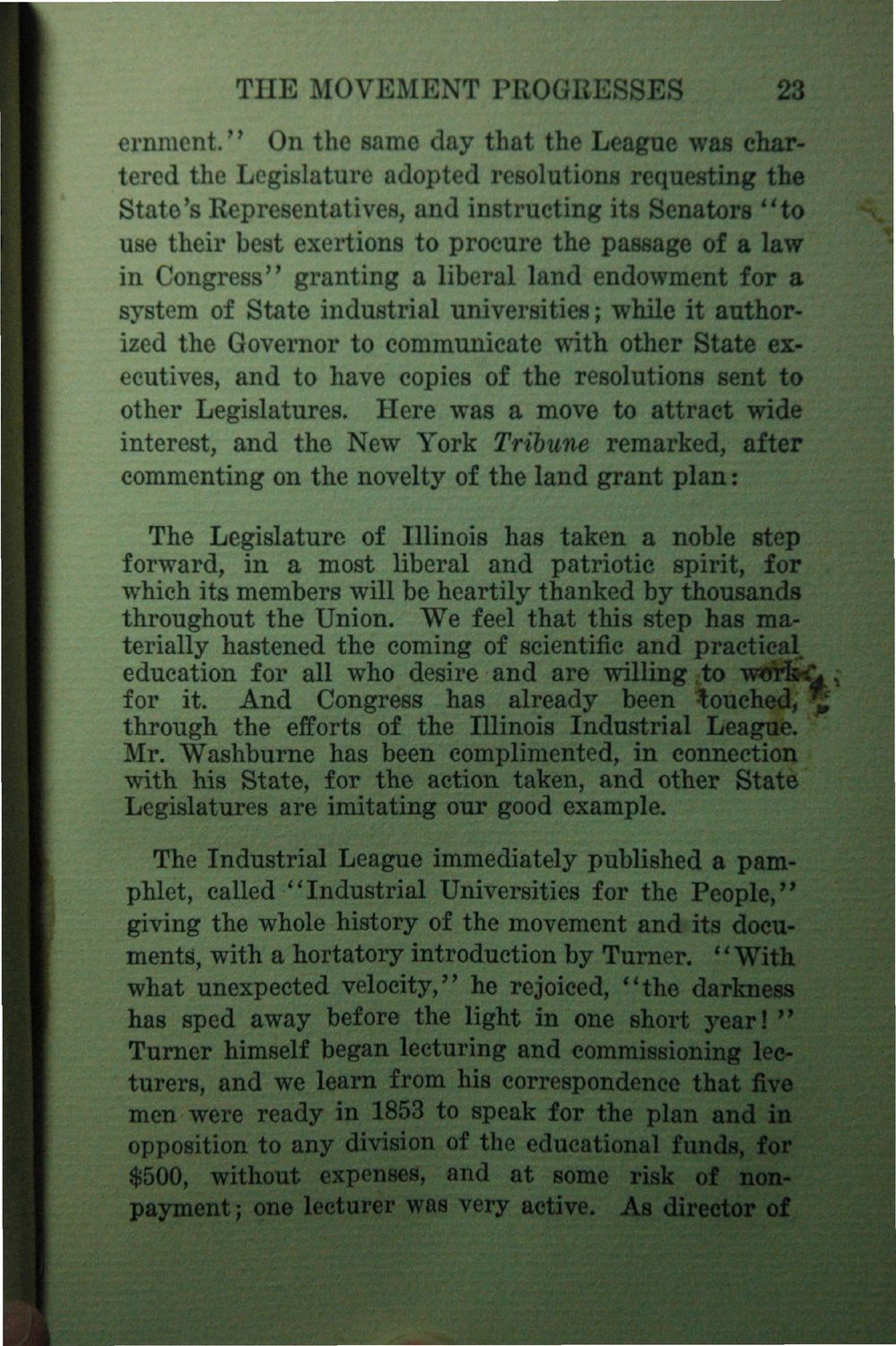| |
| |
Caption: Book - History of the University (Nevins)
This is a reduced-resolution page image for fast online browsing.

EXTRACTED TEXT FROM PAGE:
THE MOVEMENT PROGBESSES 23 eminent." On the same day that the League was chartered the Legislature adopted resolutions requesting the State's Representatives, and instructing its Senators "to use their best exertions to procure the passage of a law in Congress" granting a liberal land endowment for a system of State industrial universities; while it authorized the Governor to communicate with other State executives, and to have copies of the resolutions sent to other Legislatures. Here was a move to attract wide interest, and the New York Tribune remarked, after commenting on the novelty of the land grant plan: The Legislature of Illinois has taken a noble step forward, in a most liberal and patriotic spirit, for which its members will be heartily thanked by thousands throughout the Union. We feel that this step has materially hastened the coming of scientific and practical education for all who desire and are willing ;to w**rw& for it. And Congress has already been jj through the efforts of the Illinois Industrial League.' Mr. Washburne has been complimented, in connection with his State, for the action taken, and other Staid Legislatures are imitating our good example. The Industrial League immediately published a pamphlet, called "Industrial Universities for the People," giving the whole history of the movement and its documents, with a hortatory introduction by Turner. j j With what unexpected velocity," he rejoiced, "the darkness has sped away before the light in one short year! " Turner himself began lecturing and commissioning lecturers, and we learn from his correspondence that five men were ready in 1853 to speak for the plan and in opposition to any division of the education^ funds, for $500, without expenses, and at some rjjgk of nonpayment j one lecturer was very active. As director of
| |